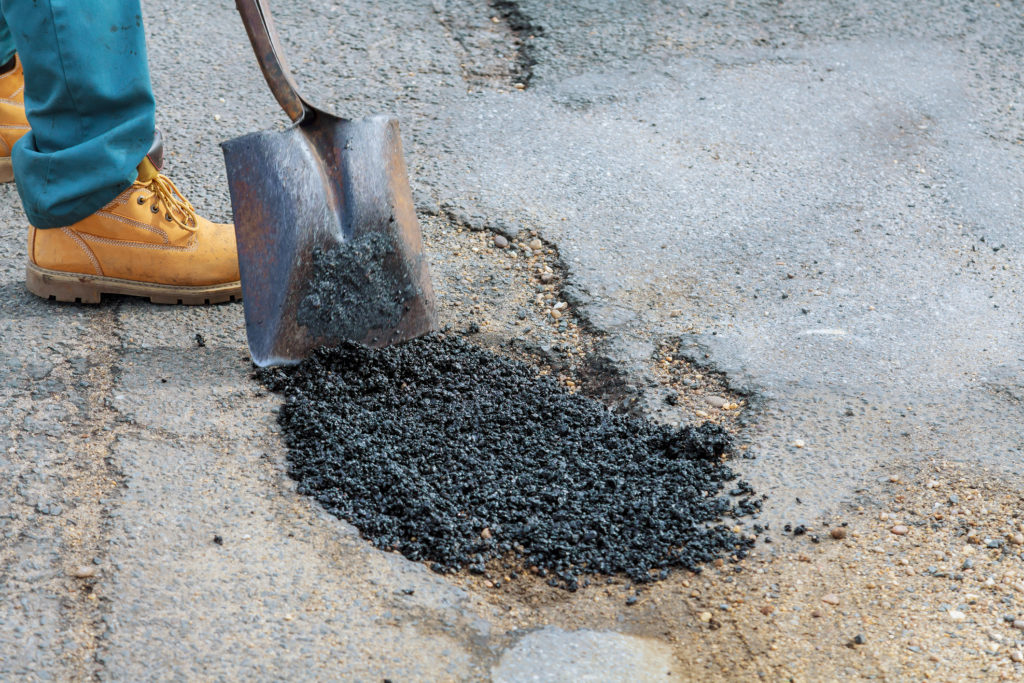Can you guess what HVAC systems, electrical and plumbing systems, and even roads and sidewalks all have in common? They are subject to wear & tear, break down, and often need maintenance and repair. If you’ve spent much time driving on the pothole lined streets in Massachusetts, you know exactly what we mean. Importantly, under certain circumstances that work may entitle a worker to payment of the prevailing wage rate. Unfortunately, due to its fleeting nature, many workers performing these vital maintenance and repair tasks may not even know they should get paid a state mandated hourly rate.
Under Massachusetts Prevailing Wage Law workers on certain jobs involving the state, counties, or local cities and towns must receive prevailing wage (often called “the rate” on job sites). The law exists so companies don’t win job bids and get public money by just competing with each other to pay their employees less money. The Prevailing Wage is designed to set a standard rate of pay for public jobs.
The actual hourly rate is set by the Department of Labor Standards (“DLS”). See G.L. c. 149, § 26. Prevailing wage jobs typically involve work on libraries, public or charter schools, police or fire stations, town halls, and other public buildings.
Generally, it is up to DLS to determine whether projects are subject to the prevailing wage law. As required by law, a public project’s awarding authority must request a “rate sheet” from DLS for a prospective project. G.L. c. 149, § 26. Upon receiving the request, DLS then issues a “rate sheet,” which outlines the different job classifications and required rates of pay for that project. These are available to download on the internet.
Unlike traditional construction projects, in the maintenance realm, generally a city or town requests a blanket rate sheet for various types of work without a specific job location, often for a lengthy period of time, such as a year. See e.g., Wage Request Number: 20200828-010 (“Town of Needham – Make HVAC repairs at various locations”); Wage Request Number: 20200806-038 (“City of Boston – Electrical repair and service work on an as-needed basis, at public works buildings and other locations”); Wage Request Number: 20200923-025 (“City of Newton – General Building Construction Repairs, Installation & Services at various City facilities”); Wage Request Number: 20200306-032 (“City of Lawrence – Street Paving Work includes installation of bituminous concrete pavements, curbing and pavement markings for roadways. [sic] Throughout the City of Lawrence”). This often results in chaos, making it difficult for workers to realize when they are performing work that is subject to prevailing wage.
So, how does one know if the work they are performing should be paid at the prevailing wage rate? Again, public construction is the touchstone. Is the work for a city, town or the state? Does it involve, for example, public buildings, roads, sidewalks or something similar?
Massachusetts General Laws defines construction as follows:
Wherever used in sections twenty-six to twenty-seven C, inclusive, the words ‘construction’ and ‘constructed’ as applied to public buildings and public works shall include additions to and alterations of public works, the installation of resilient flooring in, and the painting of, public buildings and public works; certain work done preliminary to the construction of public works, namely, soil explorations, test borings and demolition of structures incidental to site clearance and right of way clearance; and the demolition of any building or other structure ordered by a public authority for the preservation of public health or public safety.
The key phrase for maintenance and repair work is “additions to and alterations of public works.” Those words have been found to include many tasks that may not be traditionally thought of as “construction.” See generally 27A Decision, Appeal of Local 3 of wage rate and classifications for Maintenance/Repair Contract for Boston Public Library (DLI 1988) (agency found reasonable to interpret “[a]lterations” as containing “repair”); see also e.g., Letter to Holloway, George T. Wilkinson, Inc., (DOS 2002) (“installing parts, fixing pipe, and conducting other activities that alter existing heating systems are covered by the prevailing wage law”).
Even the Supreme Judicial Court has upheld an agency determination that patching potholes and trenches dug for utility lines, filling and sealing road cracks, and applying restorative seals to road surfaces is construction and subject to the payment of prevailing wage. See Felix A. Marino Co., Inc. v. Commissioner of Labor and Industries, 426 Mass. 458 (1998).
Unscrupulous employers will often not pay its workers prevailing wage for a quick (or even not so quick) repair done under a maintenance contract. This practice is illegal. Workers must be paid the correct rate for the work performed on each and every project for each and every hour.
Unfortunately, employers have a strong incentive to pay less that the correct rate, and they often do. If you believe that you were not paid the prevailing wage rate and should have been, get in touch. We evaluate cases confidentially and at no cost.
